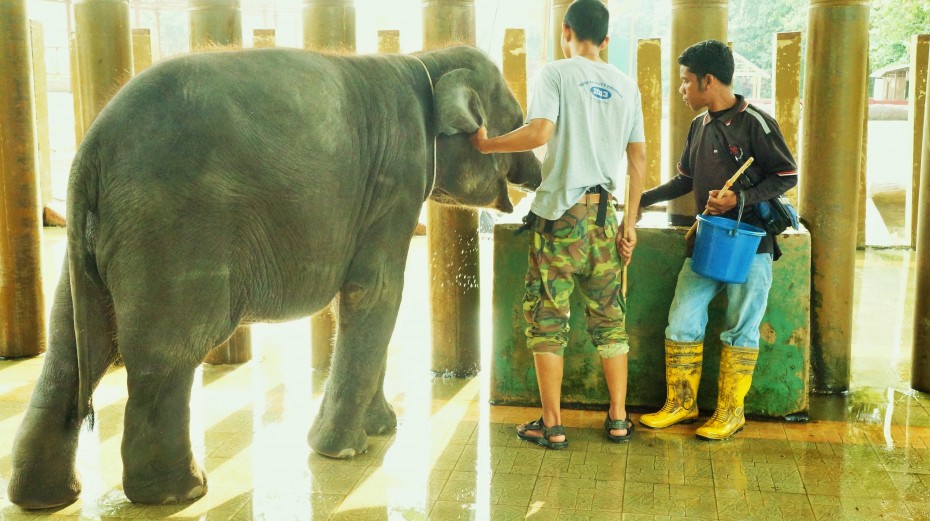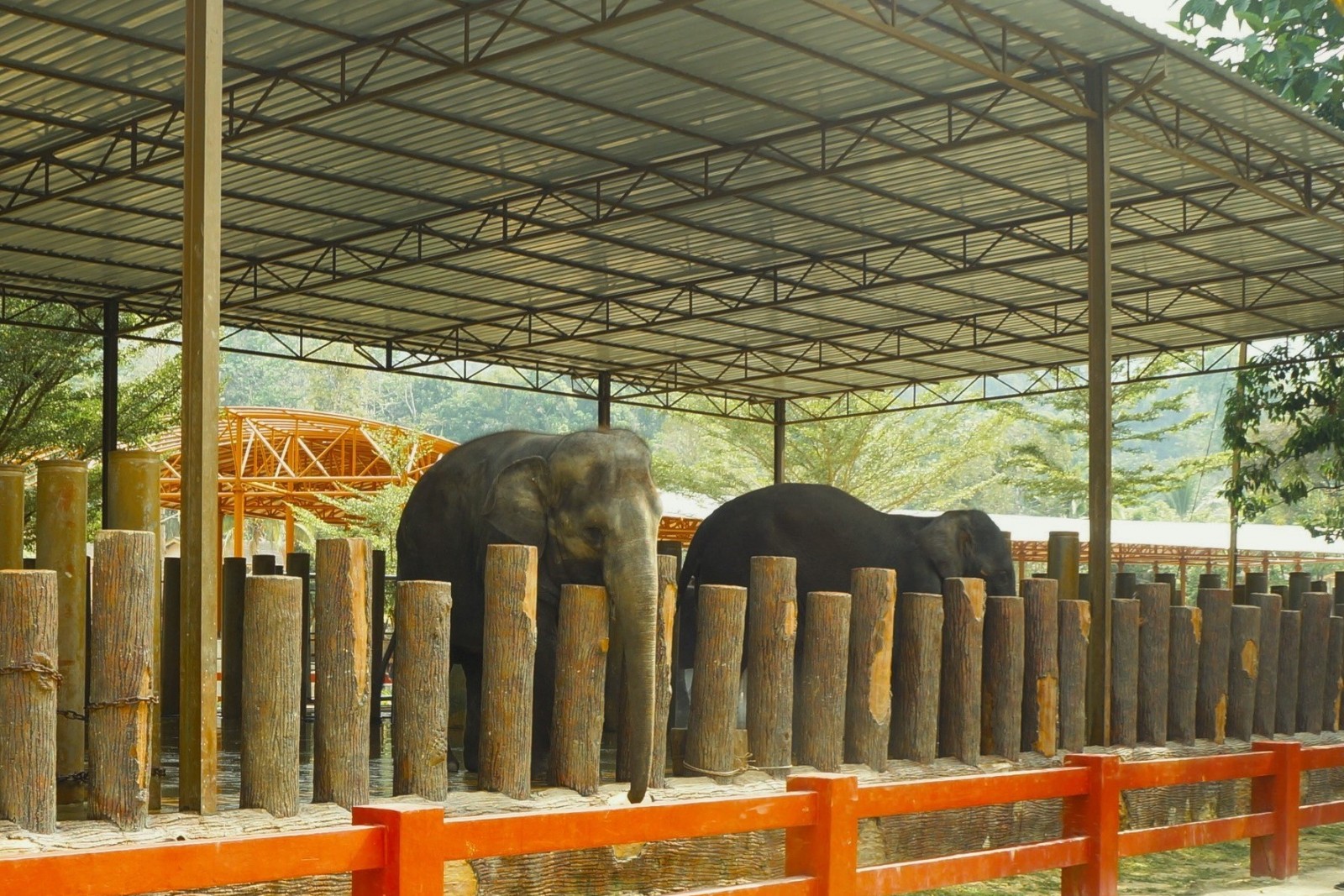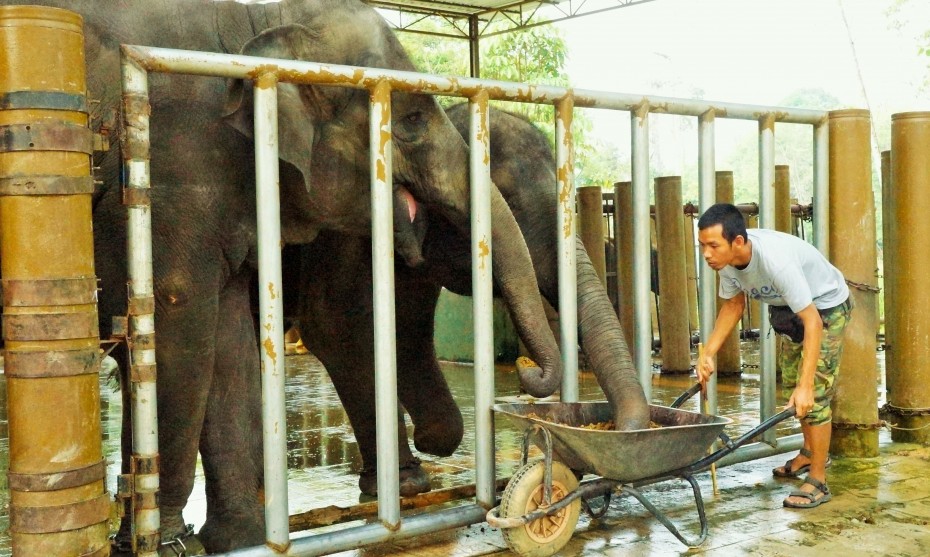By #TEAMMAYLEE
brats@thestar.com.my
Elephants have found a safe haven in The National Elephant Conservation Centre (NECC) in Kuala Gandah, Pahang.
There are 27 elephants ranging from 11 months to 77 years old. This eco-tourism destination provides shelter and care to injured elephants.
NECC was established in 1989 and opened their doors to tourists eleven years later. The government took this initiative to protect the elephants from being poached and to ensure the survival of the species.
Head of Elephant Unit, Nasharuddin bin Othman, 52, said “Our goal is to figure out how to best take care of elephants.”
Due to deforestation, elephants are forced to leave their homes, which leads to them trespassing and destroying crop fields around the forest.
The farmers take matters into their own hands by acting hostile towards the elephants, leading to elephant-human conflict. The high demand of ivory causes poachers to kill more elephants, contributing to the decline of the population. Injured or stray elephants are brought into the sanctuary, and are given extensive care to ensure their health is restored and then relocated to protected forest reserves.

Some elephants are brought in injured, whereas others, like this baby elephant, were just abandoned when the herd panicked and left them.
Tour guide Muhammad Nur Hanafi bin Saudi, 19, believes it is better for elephants to be brought into the sanctuary as proper care and treatment can be given to the injured elephants. This way, their lifespans can be prolonged.
Staff supervisor, Mohamad Firdaus, 24, said “We are the only hope for them. Without us, the baby elephants would have to fend for themselves in the wild.”
NECC prioritizes natural living environment for the elephants to make them feel as close to home as possible. Man-made structures are minimized to create a comfortable atmosphere for the elephants. The sanctuary is filled with greenery to ease elephants into the new environment so they feel more at home.
“It’s not easy to be eco-friendly, it’s not just a theory. We have to educate people who visit us to understand more about elephants.” said Zulkifli bin Ayob, Head of Eco-Tourism.
Elephants are allowed to roam the forest reserve in the morning and evening under supervision of the NECC staff and volunteers. They are also allowed to bathe in the river just like wild elephants do in forests. Every day, elephants are fed a certain diet to maintain their state of health. Adult elephants are fed an amount of 100 to 150 kg of food every day. Their favourite food are sugar cane, bananas and Napier Grass.
Baby elephants are fed with 9 litres of formula each meal. They are fed four times daily. The faeces of the elephants are mainly used as compost. “Elephants don’t digest their food completely, so there is actually a lot of useful minerals in it,” said Hanafi.
Eco-tourism provides many job opportunities to the local community. There is a local guide association in Lanchang near Temerloh. Workers are employed from the Che Wong tribe, which are an orang asli minority. There is only a population of 500 people. Eco-tourism also allows the public to interact and understand elephants better. Tourist Loo Cher Fong, 39, states that he wishes to expose his children to elephants at a young age. “They need to know more about it in person, rather than what they see from books and TV.”
Interaction between elephants and humans allows them to be more comfortable with humans. The staff have also developed a close bond with the elephants.
“We are living with animals in this world. We have to try our best to live in harmony.” said Zulkifli.
NECC is funded and supported by the government, but there are many volunteers among the staff. They are not given wages, but they make money by giving tours. Donations by tourists also help sustain the centre. In the past, elephant riders (mahouts) used to earn extra income through letting tourists ride elephants. This activity was discontinued because NECC care for the welfare of the elephants and safety of the mahouts.
“We are closely watched by NGOs and we don’t want to abuse the animals for the sake of tourism.” Said Zulkifli.
In terms of future plans, NECC wants to include a jungle trekking activity for tourists, so they are able to observe the behaviour of elephants in the wild up close and personal. The NECC intends to spread the message of protecting these wildlife creatures and educating people for the benefit of their knowledge. “Our forest won’t expand much more,” said Zulkifli. “But the animals are there, and they need a home.” He added.
“The young generation should realize that they’re living with the animals.”















Tell us what you think!